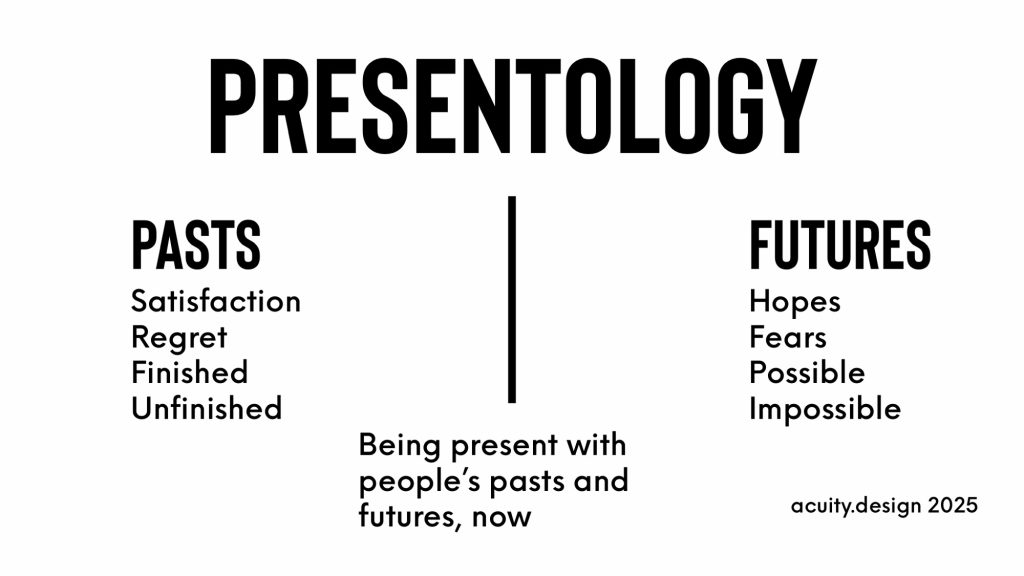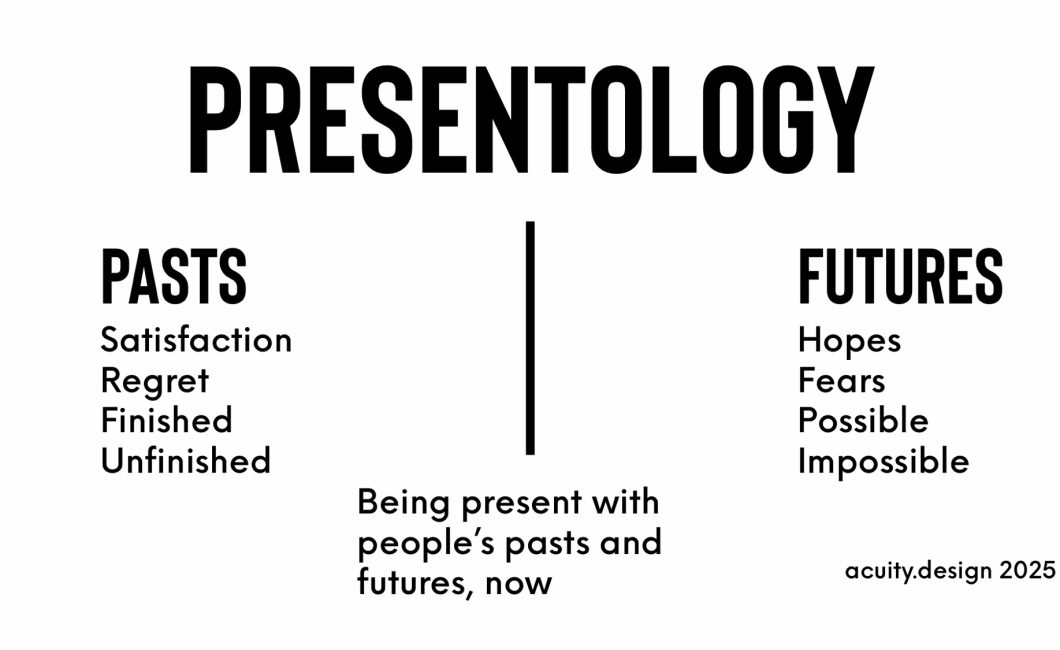
Conversations lately about projects that are trying to build hopeful futures (one from a massive new infrastructure sense and one from a local community mutuality sense) has led back to some ideas from civic assembly and design in the climate crisis workshops.
What concerns me is the Futurology bias of the processes. How the chosen perspectives are so structured to tightly focussing people and systems to both imagining and planning futures.
A history of regret
What this future bias creates is a crack in the foundations of all the plans. Without encountering and exploring the pasts, personal and institutional, there are shadows of regrets and resentments that poison the present and any capacity to imagine or plan futures.
From civic assembly work, it was clear that the deliberation process needed to first hear and absorb the people’s memories of lost futures. The promised changes and technologies that would have made their lives today better then they actually are. All those promises by politicians and prototypes made by technologists that were never fulfilled and no one explained why. Past hopes and futurology narratives can become the rich soil of right-wing resentment farming. The basis for some of that regret radicalisation in the UK can be found in the White Heat of Technology dreams of the left.

Futurology and hopeful design ideas will fail if they focus on futures and don’t engage with the history of regrets.
Presentology
Being present with people’s pasts and futures, now
The idea of Presentology plays upon two senses of Present.
- The sense of time: being explicit about anchoring people to their extraordinary human capacities to time travel to pasts and futures thru memory and imagination. The use of Autonoetic Consciousness to feel embodied in different time periods.
- The sense of physicality: being explicit about together as humans. There is power in speaking out loud about hopes and regrets with other people. Hearing yourself and being heard by others. Being taken seriously by people who are serious. Being honest about what was lost with people who can explain why (without simply blaming some Other).
Storytelling is important but too many professionals and organisations seem to view themselves as the main author and people as the audience.
Stories are strong. This is the reason Design Fictions and narrative techniques are used in Futurology to imagine new possibilities and innovations.
However, it is that strength that haunts the present. Those institutional stories told and never finished. Those personal stories built up from childhood but never told and never listened to.
Holding both the past and future in the present
This is Presentology: using institutional power and capability to hold a space for people’s pasts and futures in the future present.
It will be hard because resentment and regret deserve honest replies.
Organisations must be willing to explain and take responsibility for lost hopes and crushed dreams. Sometimes it will be because people stop noticing what was fixed and what needs were satisfied. Sometimes it will be because what changed was systemically necessary but personally or communally painful.
Yet without these conversations, how can futures be truthful and well founded?
The right proves daily the power of their core narrative pattern. Taking resentments, naming an Other as responsible and permissioning action as restorative revenge.
We cannot build better futures without taking the fuel of past promises and hopes away from populists and authoritarians.
I’m happy to chat about Presentology and specific techniques. Either comment or contact me.

One comment: